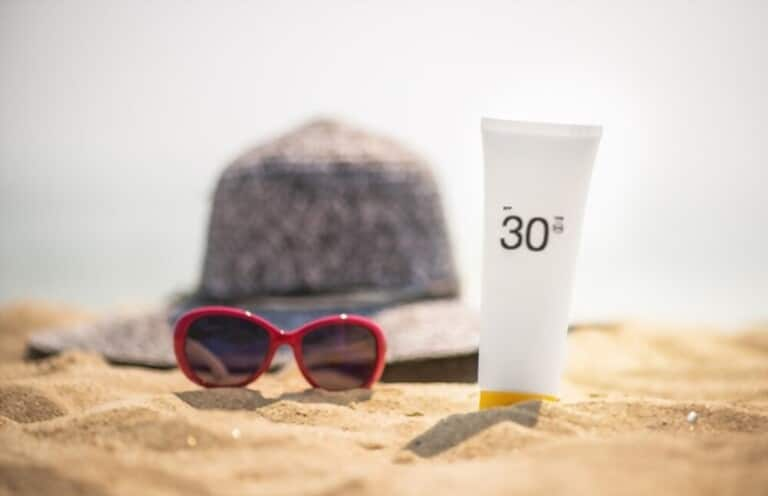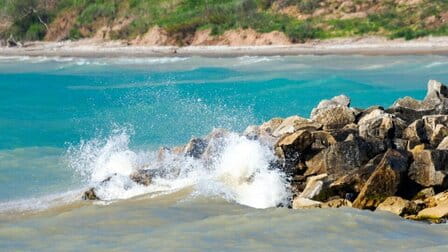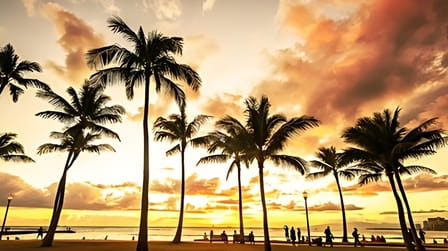The Need for Sunscreen in the Tropics
The sun may get very hot in the tropics, especially throughout the day. Despite taking precautions against the sun's harmful rays, people often forget to protect their skin from the sun. Excessive sun exposure, however, has been linked to serious health problems like dehydration, sunburn, and even skin cancer. While exposure to sunlight can provide vitamin D, it is important to avoid overexposure.
Tips for Safely Enjoying the Sun
It's only human to soak in the rays, but we shouldn't let that come at the expense of our health. The good news is that we can shield ourselves from the sun by taking a few simple and quick steps. Sunscreen, protective gear, limiting outdoor activities during peak hours, and maintaining adequate fluid intake are all recommended. With these easy measures, we can bask in the sun's warmth without exposing ourselves to harmful UV rays.
Use sunscreen correctly to prevent skin cancer and other sun-related illnesses
Sunscreen is the best defense against sunburn and other skin harm. Sunscreen should be used at all times when going outside. But proper application is essential for maximum defense against the sun's rays.
To maximize the effectiveness of your sunscreen, consider the following:
Determine your skin type to determine the appropriate SPF. When it comes to protecting fair skin from the sun, a higher SPF is a must.
To maximize skin absorption, sunscreen should be applied 15-30 minutes before sun exposure.
Be sure to slather on plenty of sunscreen before hitting the beach. If you're going to be swimming, reapply every two to three hours.
Sunscreen should be worn every day, especially on overcast or foggy days. Remember that ultraviolet (UV) radiation can cause skin damage even through clouds.
Dress Appropriately for Skin Protection
In addition to sunscreen, the right clothes can shield your skin from the sun's rays. Choose cotton or linen over synthetics because they are more breathable and absorbent, keeping you dry and comfortable.
Wearing loose, long garments will provide you with extra cover.
Wearing loose, long-sleeved blouses and long pants or skirts will reduce the amount of skin exposed to the sun and will allow the sunscreen to work better. For this reason, people in tropical regions traditionally wear clothes that cover their entire bodies.
Put on a stylish, protective wide-brimmed hat.
A wide-brimmed hat not only protects your noggin, but also your face, neck, and ears from the sun's harmful rays. Pick something fashionable that goes with your ensemble.
The Value of High-Quality Sunglasses

How to Find the Perfect Sunglasses
For the sake of your eyes, you should definitely spend money on a good pair of sunglasses. Choose a reputable brand of sunglasses that also provides 100 percent protection from the sun's rays. Simply looking at the label or sticker will tell you how secure it is. Don't assume that darker lenses provide better protection just because they're darker. A cheap pair of sunglasses may look cool, but they won't protect your eyes from harmful UV rays. When shopping for sunglasses, quality matters.
Effective Sunglasses Buying Strategies
Purchasing a reliable pair of sunglasses is essential if you care about keeping your eyes safe from the sun's rays. Pick a trusted brand of sunglasses that offers full protection from the sun's rays. Before making a purchase, always check the label or sticker to ensure the appropriate level of security. Be aware that darker lenses do not automatically provide additional safety. These lenses may render an inexpensive pair of sunglasses worthless for protecting your eyes. Choose some good shades to shield your eyes from the sun.
Keeping Hydrated in the Tropics
In this hectic world, it's easy to neglect drinking enough water. However, replacing the water lost through sweat is even more important in the tropics. Drinking water regularly throughout the day is essential for maintaining proper hydration levels. A single drink won't make up for all the water that was lost. On hot and humid days, when sweating makes you lose more water, this is especially crucial.
The Symptoms and Treatment of Dehydration
Headaches, dry mouth, dizziness, and extreme weariness are all symptoms of dehydration. Keep a water bottle on you at all times to keep from getting dehydrated. If you feel thirsty or have any other signs of dehydration, you should drink some water right away.
Sugary drink alternatives
Sugary sodas, alcoholic drinks, and caffeinated drinks all contribute to dehydration, so it's best to avoid them. Coconut water, which is easily available in most places, can be a tasty and nutritious substitute for water.
Ways to Prevent Overwhelming Time of the Sun
The sun is at its strongest and hottest between the hours of 10 AM and 3 PM. Limiting your time in the sun is important, but it may be difficult to do so during this time of year. You risk serious skin damage if you neglect your skin care practices during these times.
Why It's Good to Take Long Breaks for Lunch and Naps
It is common practice in many tropical countries to take long breaks for lunch and afternoon siestas during the hottest parts of the day. These habits encourage people to stay inside when it's very hot outside, which boosts productivity in the early mornings and late evenings.
Preventing Sunburn While Enjoying Outdoor Activities
It is critical to take required sun-safety precautions if your schedule does not permit you to stay indoors during peak solar hours. Wearing long, cool clothes will protect your skin from the sun and keep you feeling good while you're out in it. Apply sunscreen liberally, and cover up with a wide-brimmed hat and UV-blocking sunglasses. Water should be easily accessible at all times.
Keep in Mind These Beach Safety Tips
Those who intend to spend the day at the beach should seek shade from a tree or beach umbrella between the hours of 10 a.m. and 3 p.m.
Checking for Skin Cancer Regularly - Important for Sun Safety
Preventing skin cancer requires constant use of sun protection. Over time, even minor deviations from the norm can raise your risk of developing skin cancer. It's a popular myth that only those with fair skin are susceptible to getting skin cancer from being out in the sun for too long. In truth, people of all skin tones are vulnerable to sun-related cancers. Checkups may be recommended more regularly (every six months) for those with fair skin and less frequently (once every two years) for those with darker complexion. Find out how often you should be exfoliating from your family doctor based on your skin type.
Coping with Excessive Sun Exposure
Excessive sun exposure can cause a variety of health issues, and it's easy to absorb too much of it on a busy day outside or when you fail to take measures. This can include everything from moderate symptoms like headaches and thirst to severe ones like rapid heartbeat, exhaustion, disorientation, and even skin cancer. If you're experiencing any of these signs, here's what to do.
Recuperation Methods
If you start to feel the effects of too much time in the sun, locate a cool, shady spot to rest. Stay away from sugary sodas and drink plenty of water, fruit juice, or coconut water instead. To reduce skin temperature, you can use an ice pack or a cool, wet cloth to pat across your face and forehead. While resting in the shade, shed any extra garments.
Having a Period of Rest and Relaxation Is Crucial
It can be a while before someone recovers from heat exhaustion or heat stroke. You shouldn't be in a hurry to get up and go on with your day. Take 30 minutes to relax, let your skin cool down, and drink water. Keep a friend or family member close by in case you require assistance.
Getting the most out of your time in the sun
While time spent in the sun has many positive effects, it is important to avoid harmful overexposure by following sun safety guidelines. Whether you're a permanent resident, planning an extended trip, or just passing through, these sun safety advice can help you make the most of your time in the tropics while avoiding the risks.












